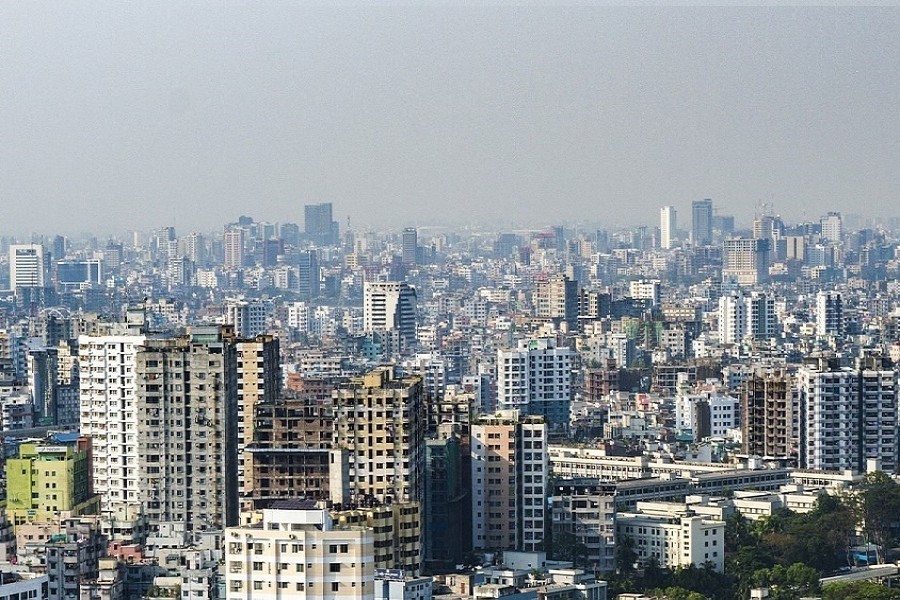In her presidential address at the Executive Committee of the National Economic Council (ECNEC), Prime Minister Sheikh Hasina has instructed the city corporations to self-finance them. The urban local government bodies, Planning Minister Abdul Mannan elaborated later on, have to lessen their dependence on the government and undertake development projects on their own financial strength. The city or municipal corporations will have to spend on infrastructure and development projects according to their incomes.
Ideally this should be the case, no doubt. But even in the United States of America where the city governments function actively and in India, the largest democracy, cities receive funds for financing development projects, public welfare and philanthropies from the federal and central governments. In the wake of the coronavirus pandemic, screaming headlines such as "US cities are broke" in the world's richest economy are sure to make people alarmed.
When self-governed cities in the US are in trouble, what chance do severely constrained city corporations in Bangladesh stand to self-finance themselves? On this score, the capital city and the port city certainly have an edge over the rest but still these two cannot manage their own affairs without a thorough review of the management system of their revenues from the sources known. Also, the bifurcation of Dhaka's local body has presented the two entities with both advantages and challenges. Overall, though, without self-governance no local body ---urban or rural ---can deliver the goods.
So far as Dhaka city and Chattogram city are concerned, the proposition of self-financing must not be outlandish at all. Under the existing conditions other big cities may not be in a position to collect enough revenues for self-financing. But gradually their revenue bases can be developed depending on the future use of public property. Smaller cities such as Narayanganj and Gazipur with industrial belts and other resources find themselves in a better stead.
In the context of American cities' capital crunch, Bruce Katz and Jeremy Nowak, co-authors of CityLab and The New Localism: How Cities Can Thrive in the Age of Populism, have convincingly argued in favour of raising funds for regeneration of cities. They view cities as 'networks of institutions and leaders and, relatedly, of communities that have vast market of civic power' waiting to be tapped. The three ways they suggest for capital formation for taking care of the multifarious aspects are nothing if not rediscovery of sources.
The first one is organisation of private and civic wealth. By skilful use of private and civic resources how key community objectives can be advanced has already been shown by Cincinnati, Indianapolis and St. Louis. These cities have been able to spur entrepreneurship and catalyse redevelopment of critically located neighbourhoods. Indeed, the crowded old city of Dhaka with narrow lanes and by-lanes can be transformed beyond recognition if Dhaka South City Corporation (DSCC) mayor's proposal for creating a commercial hub with multi-storied commercial buildings dotting the river front is translated into reality. But at the same time the redevelopment of the awfully crowded neighbourhood has to be undertaken for its integration with the mayor's plan.
Such models prove successful because they 'deploy corporate, philanthropic and university resources through professionally managed entities' which have a clear vision and mission and are used to working in close cooperation with the public sector. Cities may then feel inspired to create social impact funds by prompting local-borough bodies to channel a portion of the tax windfall they are likely to reap for investment in tax credit projects. Thus funding of affordable housing, restoration or renovation of historic buildings or sites and bolstering commercial districts becomes easier.
The second step concerns unlocking public wealth. Recovery of canals and rivers from land grabbers can be considered a primary initiative. Elevating those for value addition can earn enormous economic benefit. If investment is made in land and buildings in downtown and on riverfront or seafront, in the shape of public goods like infrastructure, the sustainable benefits will prove precious for the local bodies as well as the economy. The rivers around the capital city, sea coasts of Chattogram and Cox's Bazar are candidates for such initiatives. The Copenhagen City and Port Development Corporation is a pioneer on this front. Publicly owned and privately managed, it has regenerated the historic harbour and even used its revenue for servicing the debt on a city-wide transit system.
The third system of capital formation is on the basis of referendum vote. Under the system local people cast popular votes for or against large-scale investment in infrastructure development. It seeks to bring about a balance between mediocre public management and unnecessary privatisation. People's sovereignty and preference are upheld allowing them to participate in the development process in the true sense of the term. Additionally, voters approve investment not only in infrastructure but also in high-quality early education and well-being of young adults.
However, such referenda may not be useful in the context of Bangladesh cities for reasons understandable. Even involvement of universities and local research and technological institutions will be limited initially. But with time they will develop capacities to take up challenges. Here the government has a responsibility to make investment many times more in research and innovative initiatives at such facilities.
To make this happen, devolution of power and decentralisation of administration are the number one prerequisite. This must be complemented by rooting out corruption. Then city leaders must have a vision for the future grounded in the unique aspects and opportunities of a particular locality, which must be supported by objective data and analysis. Thus cities can embark on choosing their own destinies.


